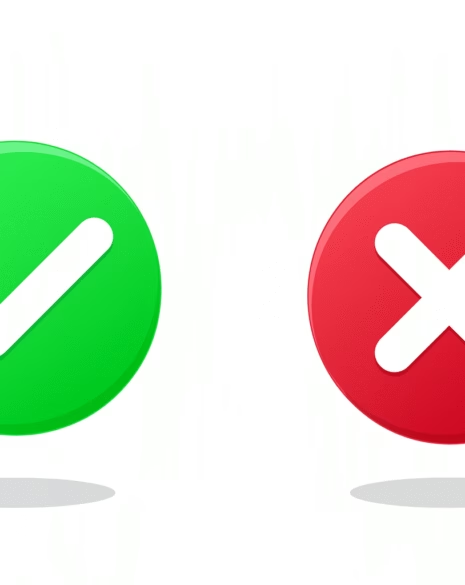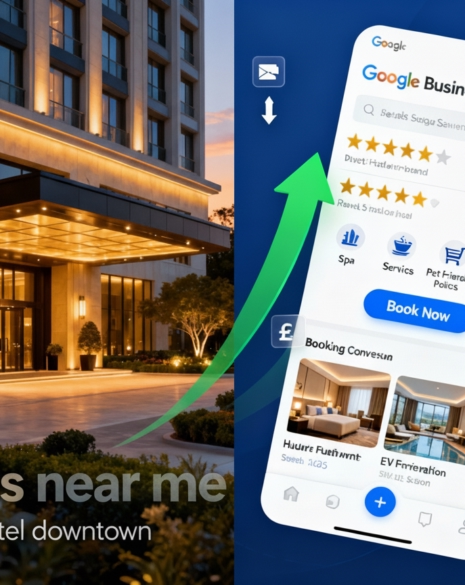A glowing review can do more than make your day — it can help you rank higher in search. And a bad one? If handled badly, it can impact both your visibility and your reputation.
In 2025, guest reviews are no longer just part of your reputation management plan. They’re part of your SEO strategy. Google explicitly includes reviews as a ranking factor in local search results. And beyond the algorithm, prospective guests rely on reviews as a shortcut for trust.
So let’s break down exactly how reviews affect your hotel’s SEO — and what to do when a bad one inevitably shows up.
Reviews Are a Local SEO Ranking Factor — Not Just Social Proof
Google’s documentation is clear: reviews are one of the core signals in local search ranking. According to its Google Business Profile guidelines, both the quantity and quality of your reviews — along with how often you respond — influence how visible your hotel is in local and map results.
When a guest searches for “hotel in [your location],” the top results often come from the local pack: that map-based trio of listings with star ratings, review snippets, and instant access to booking info. Hotels with strong, recent reviews and a pattern of responses are more likely to appear here.
Google is assessing your review activity on several fronts:
- How many reviews you have
- How recent they are
- How often you respond
- Whether your reviews reflect relevance to the searcher’s intent
In other words, it’s not just about being liked. It’s about being active, consistent, and relevant.
Reviews Directly Influence Guest Booking Decisions
Search engines aside, reviews are one of the biggest trust signals for potential guests. According to BrightLocal’s 2024 consumer review survey, 87% of consumers read online reviews for local businesses — and that number is even higher for experience-based services like hotels.
But it’s not just about five-star scores. Guests want to see patterns. They want recent reviews. And perhaps most importantly, they want to see how you respond — especially when something’s gone wrong.
Negative reviews aren’t inherently damaging. It’s the absence of a thoughtful response that can turn a one-off issue into a red flag. A quick apology, a helpful explanation, and a demonstration of accountability can transform a public complaint into a moment of earned trust.
What to Do When a Bad Review Lands
The worst thing you can do is ignore it. The second worst thing is to react defensively.
A measured response shows prospective guests — and Google — that you’re engaged, responsive, and professional. Acknowledge the guest’s experience, apologise where appropriate, and offer a constructive next step if possible. If the issue was out of your control, it’s okay to say so — but always aim to sound helpful, not dismissive.
Avoid scripted replies. Guests can spot them instantly, and it undermines the authenticity of your brand. Every response should feel like it came from a real human being who actually works at your hotel — because it should.
Handled well, even a bad review can improve your reputation by showing that you listen and act.
Reviews as a Strategic SEO and Content Asset
A strong review strategy doesn’t happen by accident. It requires intention — and integration into your wider digital efforts.
Start by encouraging reviews as part of your post-stay flow. A simple follow-up email with a direct link to your Google profile or Tripadvisor page can go a long way. You can also include gentle nudges in your welcome pack or check-out materials.
When responding, be mindful of your tone and wording. While you don’t need to include keywords (and shouldn’t force them), referring naturally to your location, amenities, or room types reinforces relevance. For example: “We’re glad you enjoyed the courtyard-facing room — it’s one of our favourites too.”
Beyond search rankings, consider incorporating guest feedback into your website content. Testimonials on your homepage or location page, when marked up with review schema, help reinforce both trust and topical authority. Just ensure you’re using proper structured data so Google can interpret that content as review-based. For more, refer to: https://moz.com/learn/seo/local-reviews
Final Thoughts
In the past, reviews sat on the sidelines of hotel marketing — part of reputation, not rankings. Today, they’re front and centre. They impact how often your hotel shows up in local search, how guests perceive your offering, and whether those guests convert into bookings.
Managing reviews shouldn’t be reactive. It should be strategic. Because visibility without trust won’t convert — and trust without visibility won’t scale.
If you’re ready to build a review strategy that strengthens both your SEO and your brand credibility, that’s where we come in.






